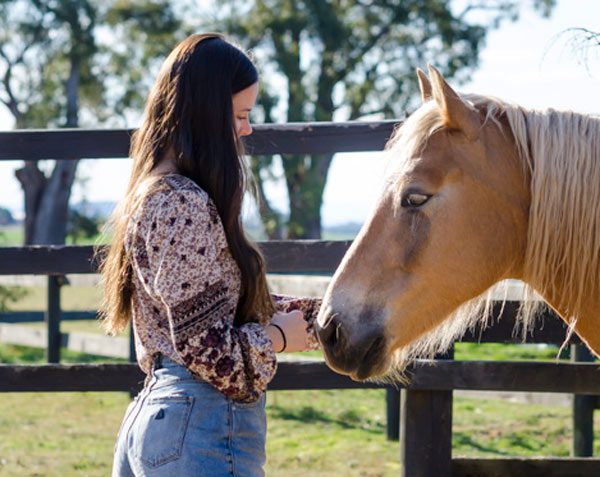
Horses are special creatures. They are majestic, strong, and can display a broad range of emotions. The relationship between humans and horses is one that has been sustained for over 6,000 years. More recently, these gentle giants have become key participants in the animal-assisted therapy to improve the mental health of many people around the world.
Equine-assisted therapy is an umbrella term that includes several therapeutic activities involving horses. Equine-assisted psychotherapy (EAP) has started to gain popularity for its effectiveness with different client cohorts.
Horses help improve mental health
Psychotherapy, Horses & Mental Health
Horses by nature are prey animals making them extremely sensitive to environmental activity and people’s emotional states even more so than other animals included in animal assisted therapy, such as dogs.
Horses are large and powerful, having the potential to allow people explore fear and other feelings which can be translated into real-life situations.
They can also help put people at ease and support people to feel accepted, because they’re unbiased and non-judgmental, responding only to people’s approach, intent and behaviour. What’s more, they’re social animals with their own individuality, and are most willing to interact when people are engaged and work to build a relationship with them. Horses will give feedback to the client by moving towards the client or away, and a whole host of other non-verbal communications, behaviours and responses.
Equine Assisted Therapy has been used in the treatment of a wide range of conditions, including:
- Depression
- Post-traumatic stress disorder
- Attention deficit hyperactive disorder
- Anxiety
- Behavioural issues, including aggressive behaviour
- Substance abuse
- Eating disorders, including anorexia and bulimia
- Relationship problems
- Communication issues
Equine-assisted therapy sessions, vary and depend on the condition being treated and the person(s) involved. Psychotherapy combined with equine-based activities, including choosing, approaching/meeting, grooming, and walking a horse. After the activity, clients then process or discuss their feelings and behaviours associated with the session. Horse-based therapy has been shown to provide numerous benefits, which can arise in as little as two to three sessions; benefits include improved:
- Self-esteem
- Communication skills
- Self-awareness
- Relaxation
- Empowerment
- Interpersonal relationships
- Self-control
- Focus and concentration
- Happiness
Studies also suggest EAP can decrease anger, depression, dissociation, and aggression.
Clients are able to experience psychotherapy or experiential learning session that are tailored to their unique needs. Horses and clients are encouraged to be who they are thus allowing the most change to take place.
